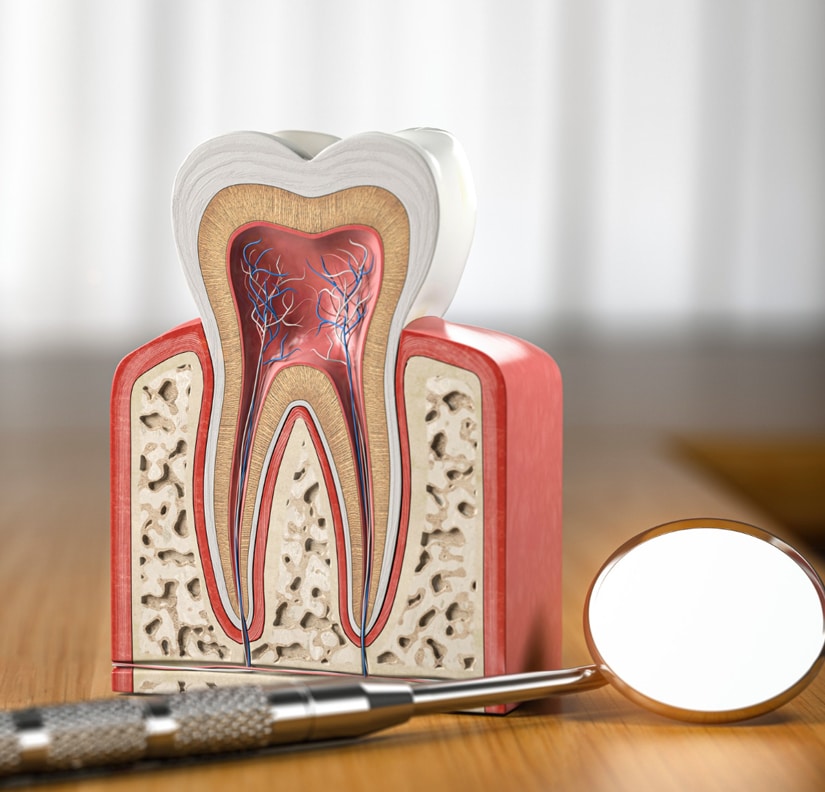
Your Source for Root Canals
When a tooth is damaged or infected, root canal therapy may be a viable option to save it. This dental procedure involves removing the infected pulp and nerves from the tooth's root canal, cleaning and disinfecting the area, and sealing it to prevent further infection. Root canal therapy is known to be highly effective in preserving the natural tooth and relieving pain and discomfort.
In some cases, however, extraction may be necessary if the tooth is severely damaged or if the infection is too extensive for root canal treatment. Our skilled dentists at Nederland Family Dental recognize the importance of preserving your natural tooth whenever possible, as it is essential for maintaining proper oral function and aesthetics.
- Reasons to save a tooth
- Identifying symptoms of a root infection
- Understanding the pain level of root canal therapy
- Process of root canal therapy
- Necessity of a shot during root canal therapy
- Possibility of needing a tooth crown after root canal therapy
- Tips for reducing the risk of future root infections
Why save a tooth?
Opting to preserve your natural tooth may initially seem like a hassle, but it is actually the superior choice for a variety of reasons. Not only does it help maintain the integrity of your dental work, but it is also more cost-effective than opting for a tooth replacement. Additionally, it plays a crucial role in promoting good bone health.
Extracting a tooth presents its own set of challenges, including the need to determine the best method for replacing the missing tooth. While implants are a popular choice, they do require a longer healing time compared to undergoing a root canal and receiving a crown.
Furthermore, having a gap in your smile can have adverse effects on your appearance and can potentially lead to other dental issues such as teeth shifting, a misaligned bite, and bone loss.
To ensure the long-term health of your mouth, it is always advisable to save your natural tooth whenever possible. However, if that is not an option, we provide various tooth replacement options such as dental bridges, partial dentures, and dental implants to help restore your smile.
What are the symptoms of a root infection?
Is root canal therapy painful?
Don't be fooled by the jokes about root canal pain. The true source of the pain is the infection in the root, and it is the root canal therapy that brings relief. During your root canal treatment, we will numb the area causing you discomfort, providing you with immediate relief.
If you suffer from anxiety, we also offer sedation dentistry to help you during your root canal procedure. Your dentist will evaluate your situation to make sure that oral sedation is a suitable option for you. Additionally, we will give you thorough instructions before and after your root canal treatment with sedation.
What happens during root canal therapy?
In Winnie, TX, our primary objective during a root canal procedure is to eradicate any infection and infected tissue within your tooth, providing relief from any pain or symptoms you may have been experiencing. Your comfort is of utmost importance to us throughout the entire process. Initially, a small hole is created in your tooth to access the root.
Under the expert care of Dr. Whitney Gomez, the root of your tooth will be meticulously cleaned, removing the nerve, pulp, and infection. The inside of your tooth will be sterilized to ensure no infection remains.
Once the cleaning process is finished, your tooth will be filled with an inert material and any necessary medication to prevent further infection. The access hole created for the root canal will also be filled. Our doctor will provide assistance with pain management during the healing process, and you should start feeling significantly better within a few days.
We give your body the necessary time to heal and schedule a follow-up examination. If everything looks good, we can finalize the root canal treatment by placing a crown or permanent filling.
Will I need a shot?
Some procedures can be done without the need for a shot, such as shallow cavities or dental bonding. However, for more extensive procedures like dental crowns, deep decay, or root canal treatment, it is recommended to numb you for a more comfortable experience.
If a shot is necessary, rest assured that we are skilled at administering them. We have extensive experience in giving shots to both adults and children, and we have mastered the technique. To help alleviate any anxiety, we keep syringes and other intimidating instruments out of sight.
Many patients have been surprised at not feeling the shot or not realizing they had already received one. Our doctor is highly skilled at ensuring a pain-free experience.
In addition, we work closely with a pharmacist who provides numbing gels and rinses to minimize any discomfort from the injection. Essentially, we can numb you before we numb you, ensuring that you won't feel the injection or the procedure.


